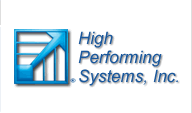Good relationships are good for business. Using Emotional Intelligence is like a fast track to getting along better with employees, co-workers and customers. This article is part of a series that highlights the different Subscales of Emotional Intelligence (EI) as measured by the EQ-i 2.0 and includes coaching tips for practical application and development. These articles are based on the EQ-i® model of EI published by MHS and on the work of Dr. Reuven Bar-On.
While coaching a senior executive of an organization that had recently gone through an acquisition, our client expressed her frustrations with the acquisition process. The acquisition plan had not been well communicated, and the change of ownership came as a complete shock to the senior leadership and other employees. Many employees, including our client, were struggling to maintain control of their emotions and reactions to this change.
Our client needed to understand Impulse Control and how her own emotions and actions were influencing others in the company. Impulse Control is one of the 15 Subscales of Emotional Intelligence measured by the EQ-i 2.0. Emotional Intelligence is defined by Dr. Dick Thompson, President and CEO of High Performing Systems, Inc., as a person’s innate ability to perceive and manage his/her own emotions in a manner that results in successful interactions with the environment and, if others are present, to also perceive and manage their emotions in a manner that results in successful interpersonal interactions.
Impulse Control is the ability to remain composed and patient under pressure while resisting and delaying one's impulse to make a rash decision. Impulse Control is important because it influences a person's ability to think before taking action and to resist being impulsive or hot-headed. In this particular situation, some employees were so frustrated that they made impulsive decisions to quit, and the company suffered not only from a significant dip in morale but also in productivity.
As a result of our coaching engagement, our client was able to recognize her emotions and to acknowledge her initial impulse to leave the organization. By employing Impulse Control techniques, she was able to delay her first inclination and ultimately found the transition to be a positive overall change.
The coaching began with the recognition of emotional triggers that were causing frustrations for our client. By simply employing skills around Self-Awareness, she was able to identify hot-button issues and topics that increased her tension. Tracking her emotions twice each day in a journal allowed her to remain centered and grounded, which in turn helped her remain in control of herself. If she sensed an increase in her frustration level, she stepped away from her desk to take a short walk around her building to cool off. Another technique that helped our client was using a trusted colleague as a sounding board. Before she sent any emails or attended any meetings, she asked her coworker to read the message or review her talking points to be sure that the tone and delivery were not rash or aggressive.
After several months of coaching, our client became a change agent and supporting force for the transition. Using techniques to present her concerns in a composed manner helped her to smooth the way for others as well. She was asked to lead a key role in the transition plan, and her success and visibility ultimately led to a promotion. If our client had followed her initial impulse to quit when the change was announced, she would have missed a key opportunity in her career advancement. Using Impulse Control skills made all the difference.
If Impulse Control is an area of development need for you or a client, here are a few coaching tips that can help someone increase their ability to remain composed.
Reflect and Create Awareness
The more awareness you have about your emotional triggers and how you manage them, the better you can avoid hasty decisions. After each major decision you make, conduct an after action review. If you notice a pattern of taking action too quickly, figure out what emotions or situations tend to precede your impulsive behaviors. When those emotions arise next time, you're more likely to be aware of the potential hot spot.
Delay Reactions and Responses
Practice delaying responses. Many moms use this technique with their kids, and it works with adults as well: stop and count to ten before you respond. Rather than counting, my client used the technique of walking around the building before taking action.
Get Input from Others
My client developed a process of getting other views and feedback from her colleagues. Using a trusted partner to help you process your reactions will provide a different perspective before you take action.
Practice Resisting Temptation
Train yourself to have self-control. Try this: place 10 M&M’s (or another favorite treat) in a bowl on your desk. See how long you can go without eating any of the candy. Note the dates and times that you were tempted to have one. Identify the triggers that precede impulsive behaviors, and find a way to resist by distracting yourself from the temptation. Practice until you can build up to a whole week of resisting the treat.
It takes time to increase Emotional Intelligence skills such as Impulse Control, but new habits will last a lifetime. The more you find ways to recognize and resist emotional triggers, the easier and the more consistent Impulse Control will become.
For a printable copy of this article, go here.
_____________________________________
High Performing Systems,
Inc., is nationally recognized
for commitment and
professional impact in cultivating
teams, organizations
and leaders to improve
performance. HPS has provided
leader development, assessments, consulting
and professional development
training since 1984.Contact HPS by email at info@hpsys.com.
High Performing Systems is an award-winning world leader in EQ-i 2.0® certification (since 2005), EI training and implementation, leader coaching and success profiles. Call 706-769-5836 to talk with an experienced EI practitioner about your organization's specific needs. |
